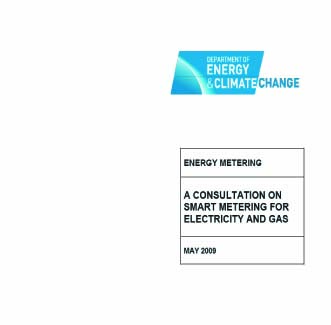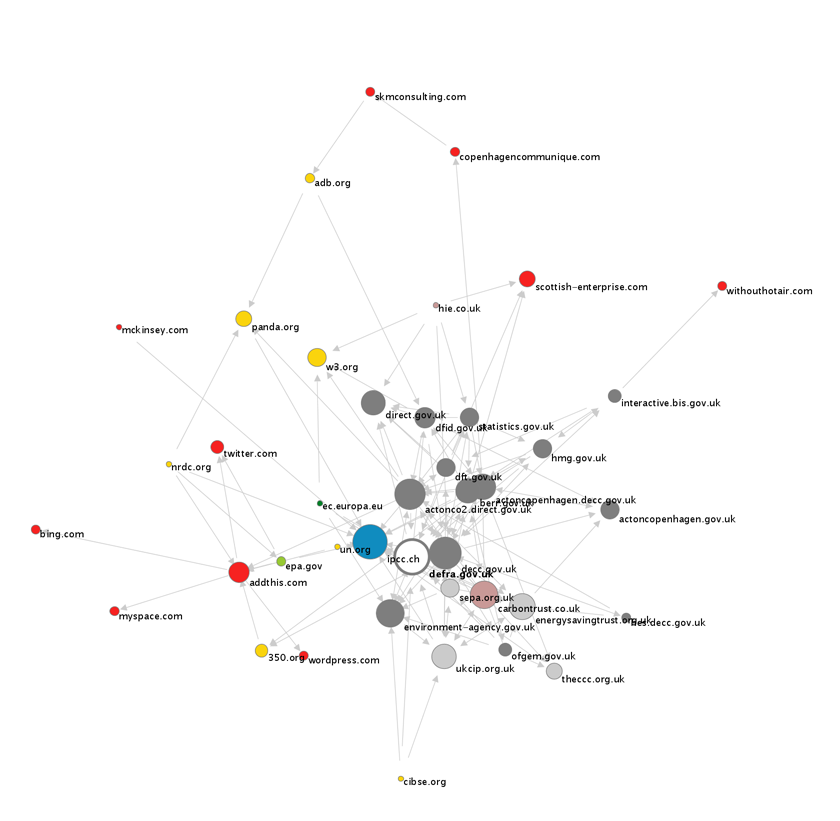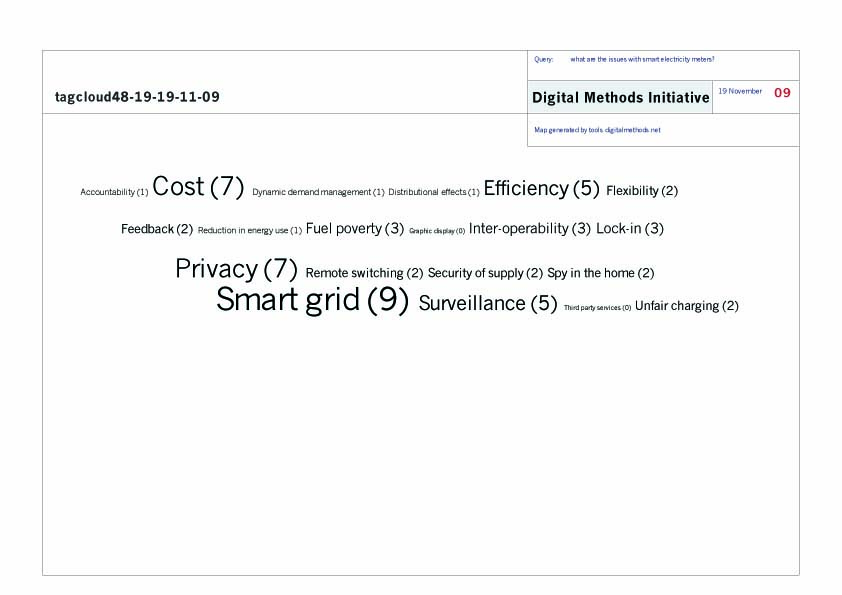Smart Meters
What is the Problem with Smart Meters? Issue Cloud Analysis (November 2009)
(from: Marres, N. (2012) ‘On some uses and abuses of topology in the social analysis of technology, or the problem with smart meters’, Theory, Culture and Society, 29(4-5), pp. 288-310. [Article] ).
This case study uses the IssueCrawler and the Googlescraper to detect the state of issuefication of the object called ‘smart meter’. It asks: what issues are currently associated with smart meters in the UK and what is their relative resonance in selected issue spaces? Are smart meters now a hot topic because of their association with environmental issues like climate change and carbon emission reduction? Or is the smart meter rather a device of energy policy, management and economy?
1. Find your issue space: the DECC public consultation on smart metering
The controversy about smart meters in the UK flared up in the fall of 2009, after the publication by the Department of Energy and Climate Change (DECC) of its impact assessment of “smart metering of gas and electricity in the domestic sector,” after the conclusion of its public consultation on smart metering. In the week following the publication of this report, a range of news stories raised concerns, as the consumer organisation Consumer Focus suggested that smart meters could be used by utility companies to switch off non-paying customers.1 Smart meters, these stories also suggested, could provide a channel for third party services, consumer applications that would run on top of smart meters, and as such would serve as what The Daily Telegraph called a “spy in the home”.2

2. Delineate your source set: the wider DECC consultation network
To delineate the relevant space to query for issues associated with smart meters, I decided to use as my starting points sources that recognize the DECC consultation on smart metering as relevant, and I used Google to get a list of all pages that linked to the DECC public consultation Report.3 (Another option would be to use the DECC consultation participant list, but this would have limited my sourceset to actors broadly supportive of the initiative.) I then used these url’s as starting points to locate an smart metering issue network using the Issue Crawler. The resulting network had a strong environmental bias.

Issue network disclosed by DECC consultation linkees, Issue Crawler, November 2009.
3. Select your issue terms: the DECC consultation in the news
To determine the issue terms for which to query the smart metering issue space, I turned to the news and selected articles that mentioned the DECC consultation in a number of different UK newspapers (Guardian, FT, Telegraph). From these sources I extracted issue terms through the basic method of dumb reading (don’t think, select all terms that qualify as issue terms). Among the smart meter issues in the news, climate change didn;t really figure, except perhaps for energy demand reduction. However, energy economy issues were prominent: including smart grid, flexibility and energy efficiency.
4. Analyse with GoogleScraper
Using the Googlescraper, I queried first the issue network, and then the pages linking to the DECC consultation for these terms. The latter turned out to have relatively high issue specificity (Figure 2). The Figure also suggested that rather than with the ‘environment’ or even ‘energy’, smart meters resonated especially strongly with informational issues (surveillance; privacy), at least in this particular issue space and time opened up by the DECC consultation report.

- Consumer Focus, “Reduce risks and increase benefits of smart meters,” press release, London, September 30, 2009
- Alastair Jamieson, Smart meters could be ‘spy in the home’”, _Daily Telegraph_, 11 October, 2009
- at http://www.decc.gov.uk/en/content/cms/consultations/smart_metering/smart_metering.aspx (Last Accessed july 2010)
